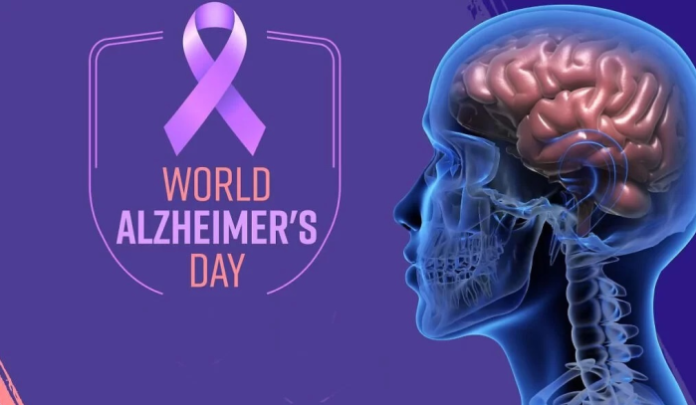New Delhi, September 23, 2024: On the occasion of World Alzheimer’s Day, experts have expressed their concern on an increasingly urgent global health crisis- Alzheimer’s Disease (AD). Affecting millions of lives worldwide, Alzheimer’s is a neurodegenerative disorder that gradually robs individuals of their cognitive abilities, memory, and independence. In India alone, an estimated 5 million people are currently living with dementia, with Alzheimer’s accounting for 60-70% of these cases. Globally, over 55 million people suffer from this condition, a number expected to triple by 2050 if current trends continue.
According to experts, Alzheimer’s mainly affect seniors and the risk increases considerably after age 65. Dr. Praveen Gupta, Principal Director & Chief of Neurology at Fortis Hospital, said, “Alzheimer’s is not just about memory loss; it’s a comprehensive deterioration of brain function, affecting thinking, reasoning, behavior, and emotions. It is a progressive disease and irreversible too. It begins with cognitive problems like short memory loss and gradually leads to severe cognitive decline and loss of independence.”
“Alarm bells are ringing and our healthcare delivery systems need to be fully prepared to support early diagnosis and create long-term care ecosystem for Alzheimer’s patients. We need more specialized dementia care centers, robust community support, and training for caregivers to manage the emotional and physical toll of the disease,” added Dr Praveen Gupta.
The key causes of Alzheimer’s remain largely unknown, though research points to a combination of genetic, environmental, and lifestyle factors. “While we cannot pinpoint a single cause, risk factors like age, family history, and lifestyle contribute significantly to the onset of Alzheimer’s,” said Dr. Nitin K Sethi, Chairman of Neurology at PSRI. “Hypertension, alcohol, smoking, and diabetes enhances the risk, and early clinical intervention may act as check and delay progression.”
According to experts, Alzheimer’s progresses through four distinct stages. In the Preclinical Alzheimer’s Disease stage, no outward symptoms are noticeable, but brain changes start years before any cognitive decline. As the disease advances to Mild Alzheimer’s, individuals begin to experience memory lapses, difficulty in organizing thoughts, and may struggle to recall familiar names or places. Moderate Alzheimer’s, which is often the longest stage, brings more pronounced symptoms like confusion, frustration, trouble with language, and noticeable behavioral changes. In the final stage, Severe Alzheimer’s, individuals lose the ability to respond to their environment, carry on conversations, and gradually lose control of movement.
“Without early screening or diagnosis, it would be difficult managing this epidemic disease efficiently,’ explained Dr. Madhukar Bhardwaj , Director & HOD-Neurology at Aakash Healthcare. “While there is no cure for Alzheimer’s, early interventions such as medication, cognitive therapy, and lifestyle changes can slow progression and improve the quality of life for patients and caregivers.”
According to the Alzheimer’s and Related Disorders Society of India (ARDSI), nearly 1.5 million new cases of dementia are reported every year, with Alzheimer’s forming a significant majority. The World Health Organization (WHO) projects that by 2050, India will have the second-highest number of dementia cases globally.
“Unfortunately, awareness about Alzheimer’s in India is still low, and many cases go undiagnosed until the disease has progressed significantly,” saidDr. Neha Kapoor, Associate Director & Head of Neurology at Asian Hospital. “The limited awareness about Alzheimer’s, combined with the stigma surrounding mental health, often prevents families from seeking early help. It is essential that we focus on raising awareness and building strong support systems for both patients and their caregivers.”
Current treatment for Alzheimer’s focuses on symptom management rather than a cure. Medications like cholinesterase inhibitors and memantine are used to manage cognitive symptoms, while therapies and counseling are crucial. Experts are of the view that research is ongoing to better understand the causes and treatment of Alzheimer’s, with exciting developments in biomarkers, genetics, and drug trials. Advances in imaging technology allow for early detection, and ongoing clinical trials are exploring new ways to halt or even reverse the damage caused by the disease.
“There is a need to find homegrown solutions by accelerating research and trials. Cohesive collaborations between public and private sector can push funding and financing of Alzheimer’s research and support dementia care infrastructure,” Dr. Nitin K Sethi.
World Alzheimer’s Day is a reminder that addressing this growing crisis requires a collective effort from governments, healthcare providers, families, and society at large. In India, more than 60% of dementia cases remain undiagnosed, highlighting the urgent need for widespread awareness and early diagnosis campaigns.
“Both patients and their caregivers silently suffer in the case of as the number of Alzheimer’s patients continues to rise, proactive measures such as public education, early screening, and comprehensive care plans will be critical in improving patient outcomes and reducing the overall impact on society,” concluded Dr. Neha Kapoor.
Corporate Comm India (CCI Newswire)





















